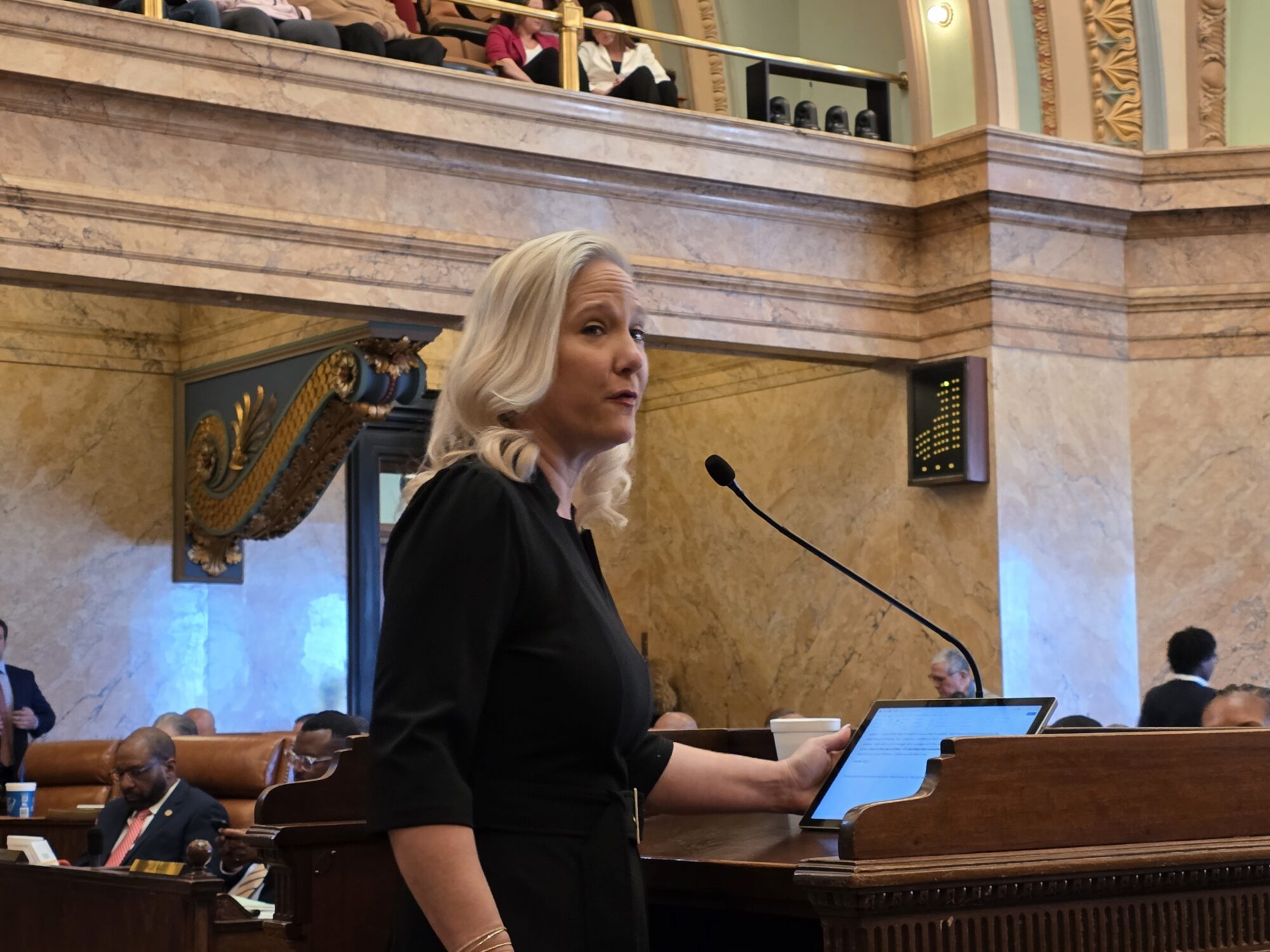By all reports, John McCain isn’t much of an orator. But one wouldn’t know it from his impressive acceptance speech yesterday at the Republican National Convention. Part personal story, part policy blueprint, the speech, ably delivered by McCain, also was a stirring call to national service. Its greatest virtue, however, was its stark delineation of the differences between Sen. McCain and Barack Obama.
Even more than McCain’s rallying cry to “fight with me,” the speech may be remembered as a study in contrasts. In his remarks, McCain had kind words for his Democratic opponent. “Despite our differences, much more unites us than divides us,” McCain said. “We are fellow Americans, and that’s an association that means more to me than any other.” It was hard to avoid a comparison with Obama’s speech, which repeatedly assailed McCain, hitting its lowest point with the candidate’s cynical quip that “John McCain likes to say that he’ll follow bin Laden to the Gates of Hell, but he won’t even go to the cave where he lives.” The fact that McCain’s bi-partisan gesture was interrupted by a Code-Pink infiltrator, while obviously not Obama’s doing, only served to spotlight the differences in class across the two sides of the political isle.
Just as telling were the candidates’ divergent conceptions of America. Although Barack Obama purportedly is the candidate of hope, McCain’s speech sounded the more hopeful of the two. The America that emerged from Obama’s speech was a nation defeated. We have lost “lour sense of common purpose, our sense of higher purpose,” Obama gloomily intoned. McCain surrendered to no such pessimism. He invoked, instead, a nation that has “faced greater challenges.” In Obama’s vision, America had lost its way. For McCain, the country was as strong as ever, and needed only to “show the world again how Americans lead.”
These differing assessments yielded very different solutions. To a spiritually depleted America, Sen. Obama’s answer was a massive expansion of the government’s reach. Whether it was health care, education, or the economy, Obama seemed to see an opportunity for the government step in where Americans and markets had purportedly failed. There was even a suggestion that those with “credit card bills you can’t afford to pay,” apparently through no fault of their own, would be cared for under a Barack Obama presidency. Conversely, McCain’s vision called for less government – in the form of low taxes, spending discipline, and open markets – and more opportunity. The senator even found a good word for that most eccentric notion: personal responsibility.
The distinctions between the two candidates were equally pronounced in the realm of foreign policy. With regard to Iraq, Obama praised himself for his (by-no-means-solitary) calls to withdraw troops. McCain, too, noted that he had fought “for the right strategy and more troops in Iraq when it wasn’t the popular thing to do.” The difference, of course, is that McCain was right and Obama was wrong, and one need not be a McCain supporter or registered Republican to agree. In an appearance yesterday on Bill O’Reilly’s program, none other than Obama himself acknowledged that “the surge has succeeded in ways that nobody anticipated. I’ve already said it’s succeeded beyond our wildest dreams.” Oddly, Obama declined to mention that in his acceptance speech.
Beyond Iraq, the two speeches offered a clue to how the two candidates would approach future conflicts. Their reactions to Russia’s recent invasion of Georgia were particularly instructive. Although Obama pledged to “curb Russian aggression,” his sole reference to Georgia came in the course of an attack on President Bush. “You can’t truly stand up for Georgia when you’ve strained our oldest alliances,” Obama said, as though there were any reasonable comparison between the Bush administrations diplomatic failures and Russia’s premeditated bombardment of a free and democratic nation. For his part, McCain sharply condemned Russia’s assault against a “democratic neighbor to gain more control over the world’s oil supply, intimidate other neighbors, and further their ambitions of re-assembling the Russian empire,” and affirmed America’s “solidarity” with a besieged ally. No degree in international relations is required to see which response would give the Kremlin more pause.
But it was the conclusions of the two speeches that were most revealing. As is his wont, Obama placed himself unabashedly in the tradition of Martin Luther King, encouraging the perception that he is not only a spiritual healer but a political savior with an “economy to fix and cities to rebuild and farms to save.” And yet McCain, despite his far more substantial career, chose to strike a humble note. He recalled his youth as a brash young pilot during the Vietnam War, a prideful hothead who “liked to bend a few rules and pick a few fights for the fun of it.” But having suffered as a POW, McCain explained that he was “not running for president because I think I’m blessed with such personal greatness that history has anointed me to save our country in its hour of need.” Rather, he was running to serve a cause greater than himself. The contrast with Obama’s media-inflated celebrity and the self-absorption of his campaign – how else to describe the Obama camp’s assurance that “we are the change we seek”? – was unmistakable, and devastating.
McCain’s speech may have lacked Obama’s polish. And perhaps it didn’t energize the conservative base in the same way as Sarah Palin’s charmingly homespun “hockey mom” warm-up earlier in the week. But better than almost any speech in the race to date it demonstrated the differences between the candidates and the stakes in the election. Whatever one makes of the nominees, there should be no doubt about where they stand.
Frontpage
9/5/8







